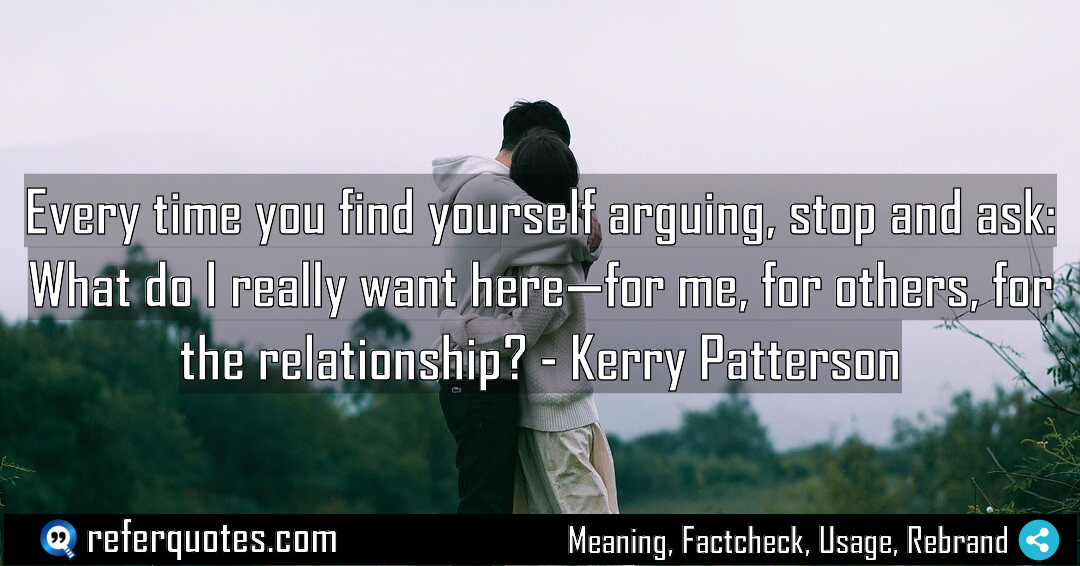Every time you find yourself arguing, stop and ask… It’s a game-changer. This simple question forces a mental shift from winning a battle to achieving a real, meaningful outcome. I’ve used it to de-escalate everything from boardroom standoffs to silly spats with my partner.
Share Image Quote:Table of Contents
Meaning
It’s about interrupting the automatic pilot of conflict to reconnect with your true goal.
Explanation
Here’s the thing most people miss. When we argue, our brains go primal. We stop wanting a solution and start wanting to win, to be right, to defend our position. This question is an emergency brake. It pulls you out of the adrenaline rush and forces a moment of brutal, honest self-reflection. Are you trying to solve a problem, or are you just trying to score points? The magic is in the three parts: for me, for others, for the relationship. It forces you to consider the entire ecosystem of the interaction, not just your own bruised ego.
Quote Summary
| Context | Attributes |
|---|---|
| Original Language | English (3668) |
| Category | Personal Development (697) |
| Topics | clarity (95), intent (7), reflection (15) |
| Literary Style | clear (348), practical (126) |
| Emotion / Mood | calm (491), introspective (55) |
| Overall Quote Score | 84 (319) |
Origin & Factcheck
This comes straight from the 2002 classic, “Crucial Conversations,” by the quartet of Patterson, Grenny, McMillan, and Switzler. You’ll sometimes see it misattributed to general self-help gurus, but its home is firmly in that research-backed methodology for high-stakes communication.
Attribution Summary
| Context | Attributes |
|---|---|
| Author | Kerry Patterson (35) |
| Source Type | Book (4032) |
| Source/Book Name | Crucial Conversations: Tools for Talking When Stakes Are High (35) |
| Origin Timeperiod | 21st Century (1892) |
| Original Language | English (3668) |
| Authenticity | Verified (4032) |
Author Bio
Kerry Patterson coauthors influential books that help people tackle tough conversations, drive change, and build accountability at work and beyond. He cofounded VitalSmarts (now Crucial Learning) and spent decades developing training that organizations implement globally. He earned a master’s degree from Brigham Young University and completed doctoral work in organizational behavior at Stanford, and he has taught and consulted widely. The Kerry Patterson book list includes Crucial Conversations, Crucial Accountability, Influencer, and Change Anything—bestselling titles that continue to shape modern leadership and communication practices.
| Official Website
Where is this quotation located?
| Quotation | Every time you find yourself arguing, stop and ask: What do I really want here—for me, for others, for the relationship? |
| Book Details | Publication Year/Date: 2002; ISBN/Unique Identifier: 9780071771320; Last Edition: 3rd Edition (2021); Number of Pages: 272. |
| Where is it? | Chapter: Start with Heart, Approximate page from 2021 edition |
